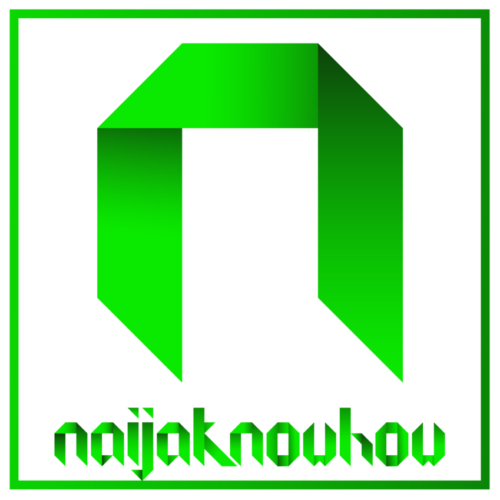As a developer, whether you’re a professional or a newbie. Let’s say you just started your development journey and you’re learning programming from websites that teach programming or channels to learn programming on YouTube. However, if you like to share your codes or even ask questions, GitHub always seems to be a good place to do that. But with the recent changes in the GitHub pricing model, a lot of people have been asking for alternatives. That’s why we’ve handpicked the best GitHub alternatives here at NaijaKnowHow.
List of The Best GitHub Alternatives for Developers
Below are some of the best collaborative git platforms every developer should use as an alternative to GitHub.
1. GitLab
When looking for an alternative to GitHub, GitLab is one of the go-to options and that’s because this platform shares similar features with GitHub. You’ll find both interfaces look quite similar and even if you’re just moving from GitHub to GitLab for the first time, you’ll find it very easy to use. GitLab offers a free community where users are allowed to collaborate with each other, you can store and share your codes. There are different features on GitLab and plus, it is an open-source platform. GitLab is free but there are paid features there but still okay compared to GitHub.
2. SourceForge
SourceForge is an open-source platform I love and most times if I want to download free software. I usually come to SourceForge to get it. This platform is purely made for software developers, it is a platform where you can host your software for others to download and also give reviews, you can share codes and collaborate with other developers out there. The existence of SourceForge isn’t just new, the platform has been around for a long time now. It is one of the most active websites for developers. SourceForge might not look modern compared to GitHub, but it gives free access to developers and that makes it a great alternative.
3. Bitbucket
Another alternative to GitHub is Bitbucket. It is owned by Atlassian, which also owns Jira and Trello. Bitbucket offers unlimited private repositories for free, and it also integrates with many other Atlassian tools. Bitbucket has a slightly different interface than GitHub, but it offers similar features, such as pull requests, code reviews, and issue tracking. One of the features you’ll be able to use on Bitbucket is the API, this platform allows developers to integrate other tools and services on Bitbucket. You’ll find self-hosted and cloud-based options on Bitbucket. The platform is friendly for developers and it is very popular.
4. GitKraken
GitKraken is a powerful Git client with a visual interface for managing Git repositories. It supports GitHub, GitLab, and Bitbucket, as well as other Git hosting services. GitKraken provides a range of features, such as code review, merge conflict resolution, and built-in Git commands. GitKraken’s interface is easy to use and provides a range of customization options. It also offers integrations with popular tools, such as Jira and Trello. GitKraken is free for personal use, and it also offers a paid version with additional features and support.
5. Launchpad
Launchpad has been around for a while as well and it also works just like GitHub. Most developers take Launchpad as a place to collaborate and share ideas together. Launchpad is an open-source platform and just like Sourceforge, developers can always host their software and also maintain it there. Using Launchpad, you can share source codes, you can track bugs and any underlying issues as well. This platform is one of the best out there, while it may not be very popular like GitHub, it still serves as a good alternative to it.
6. Codeberg
Codeberg is quite similar to Sourceforge and Launchpad. It is a collaborative platform where developers can host software, content and projects. Codeberg is built on Gitea, which is a lightweight Git hosting solution. Codeberg offers unlimited private repositories for free, and it also has a strong focus on privacy and security. Aside from the features that Codeberg offers, you’ll find the website very easy to navigate and that’s because of the clean interface it has. Codeberg is free and there’s a lot users can do aside from hosting software. You can issue tracking, pull request review codes and so on. This is one of the best GitHub alternatives for developers.
7. Gogs
While most git-service platforms might be bulky at times, Gogs does make the difference and that’s because it is lightweight. You’ll find a lot of similarities between Gogs and Codeberg. Gogs offers a range of features, including pull requests, code reviews, and issue tracking. Gogs is easy to install and can be run on a local server, making it a good option for developers who want to host their own Git repositories. If you’re a developer and you’re looking for an alternative Git platform to use, Gogs should be on your list of options. It is free and open-source, you can do almost the same tasks you do on GitHub. Gogs might not be popular with the public, but it’s still one of the best GitHub alternatives you can use.
Conclusion
In conclusion, there are many GitHub alternatives available for developers who are looking for a different set of features. Alternative platforms like GitHub that we’ve listed above will offer you the same features from GitHub at a lower cost and even sometimes free. So as a developer, it is important for you to evaluate your need to choose the right platform that fits your requirements.
8 Best Websites Like Depop (Alternatives) Best Websites Like Reddit (Alternatives) Best Websites Like Udemy to Learn Courses Online Best Websites Like Steam (Alternatives) for PC




